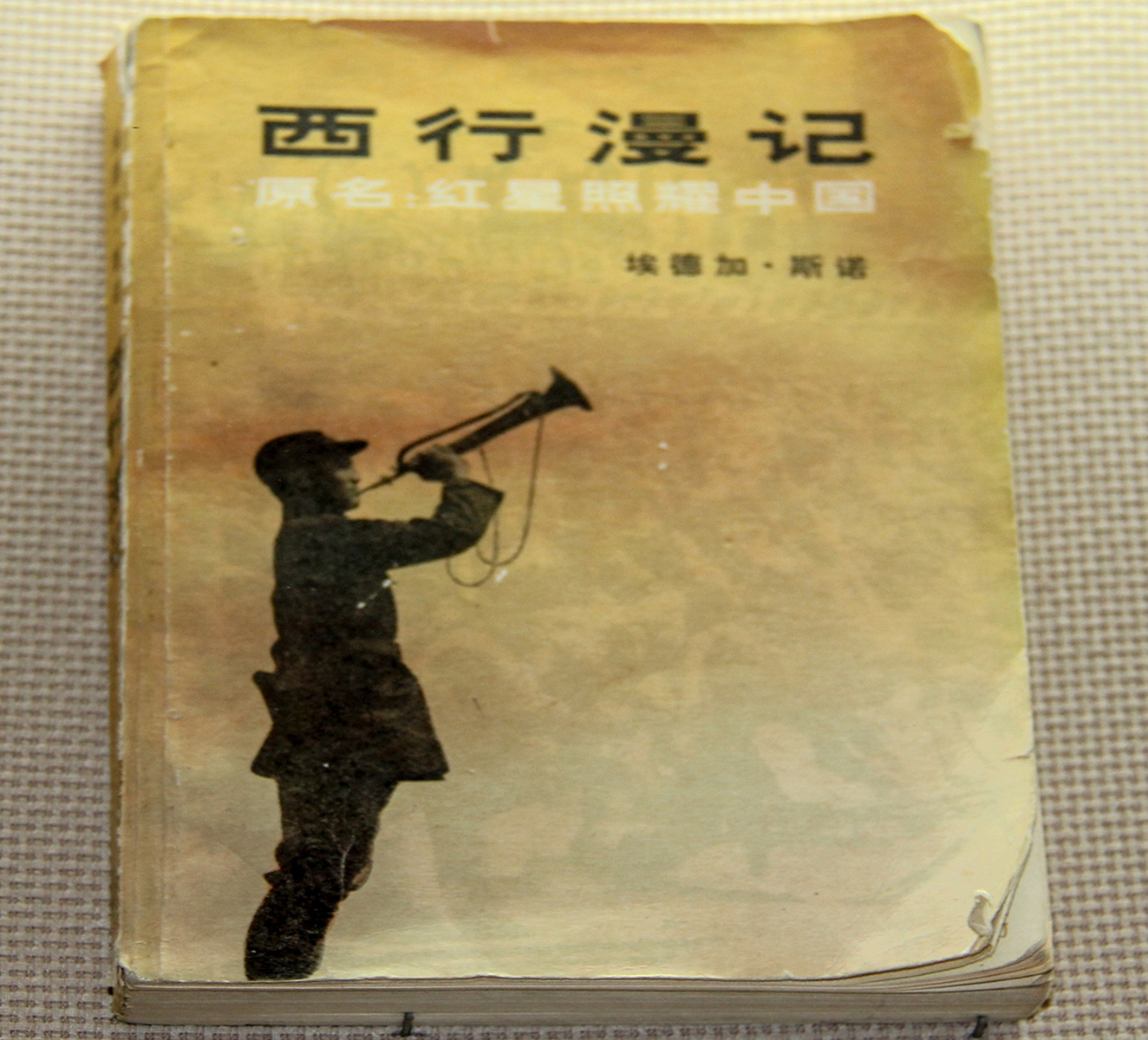IN-DEPTH / IN-DEPTH
Edgar Snow, the first Western journalist to introduce real CPC

The Chinese translation of the book Red Star Over China written by Edgar Snow Photo: VCG
Edgar Snow, a household name in China, was a journalist from the US best known for his book in 1937 called Red Star Over China which portrayed a clear and compelling image of how the then "mysterious" CPC led the revolution and brought human dignity and equality to the ordinary Chinese - and awakened China's millions - through insightful conversations with key figures of the Party, including Mao Zedong.
Snow's global bestseller provided the first peek into the real CPC base and its leaders that were described as bandits "with cyan faces and tusks" by the Kuomintang, the ruling party of China before 1949, which had been working hard to stifle the revolution through military and economic blockades since 1930s.
The book served as "a reference" for at least two former US presidents - Franklin D. Roosevelt and Richard Nixon - and also contributed to the normalization of China-US relations in the 1970s.
On July 13, 1936, after a long and difficult journey, Snow made it to Bao'an, a village in Yan'an where the CPC Central Committee was based, and met with Mao Zedong. During their conversations, Mao Zedong recounted, for the first time, the birth and growth of the Red Army, and the development of CPC bases and its policies; and for the first time he also shared his views of the CPC on international issues and the CPC's readiness to seek stronger cooperation with friendly countries based on mutual respect.
Snow was deeply impressed by the ideals of Chinese Communists, and Mao Zedong's charisma and knowledge. He saw Mao's experience as a microcosm of a whole generation of Chinese people. What made Mao different was that when he spoke, he was speaking for the ordinary Chinese people, especially peasants. Snow later described these talks as the most valuable ones in his lifetime.
During that period, Snow was able to talk to over a hundred Red Army commanders, interviewing soldiers on the front lines and recording their daily lives. He also engaged extensively with ordinary people. Snow's authentic, first-hand reports presented vastly different portrayals as opposed to Kuomintang propaganda.
During that period, Snow was able to talk to over a hundred Red Army commanders, interviewing soldiers on the front lines and recording their daily lives. He also engaged extensively with ordinary people. Snow's authentic, first-hand reports presented vastly different portrayals as opposed to Kuomintang propaganda.
After over 100 days in Shaanxi, Snow found the answer he had been looking for. He recalled the four months spent with the Red Army as a most inspiring experience, during which he met with the freest and happiest Chinese people he'd ever known.
After returning to the US, Snow continued to share stories about China's war against Japanese aggression in his country and with the world.
Today, by the lake in Peking University, one of China's most prestigious institutions of higher learning, there is a gravestone with an epitaph that reads, "In Memory of Edgar Snow, An American Friend of the Chinese People", written in both Chinese and English. Snow never hid his love for China. He is now resting in peace in China - as he wished in his will - a land that he deeply loved and where he is loved.
Global Times

